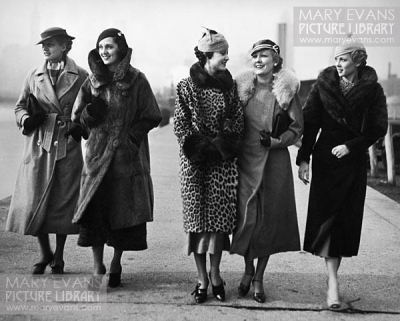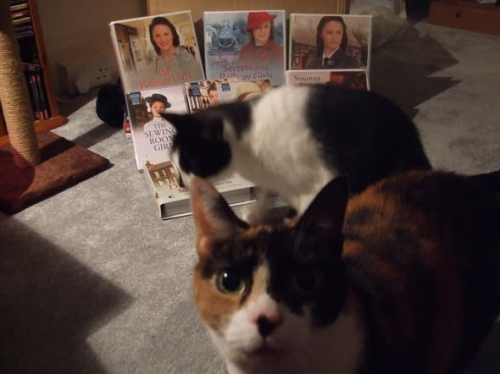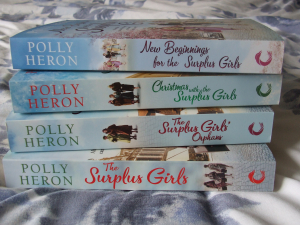Some authors plan their books - and others go with the flow and tackle the changes at the editing stage.
Me? I'm a planner.
I started out as a pantster (writing by the seat of the pants). For years, as someone who wrote purely for my own enjoyment, that was how I did it.
Then I got an agent, Laura Longrigg at MBA, who found a publisher, Allison & Busby, for The Deserter's Daughter. |  |
A&B also wanted to contract me for a second book. As it happens, I had two other sagas that Laura could have offered them (The Sewing Room Girl and The Poor Relation), but Laura said no. The Deserter's Daughter was set in the 1920s while The Sewing Room Girl went from late Victorian to early Edwardian, and The Poor Relation was late Edwardian.
"The Deserter's Daughter was 1920s, so it's best to offer another 1920s book," said Laura. "You need to get a synopsis written ASAP and it has to be as strong as the plot of The Deserter's Daughter."
Talk about panic! Well, I did get it written from scratch, and it wasn't so much a synopsis as a highly detailed plan six plages in length. It simply grew as I wrote it. (That book was A Respectable Woman.)
These days I plan every book in great detail in advance. Not only that, but I send the plan to my editor so she can give feedback. This is then incorporated into another version of the plan and back it goes again to see what she thinks.
Lots of authors tell me that they couldn't possibly plan in such detail and what I always say to them is that I don't regard it as planning - I see it as the structural edit. The more the editor and I have agreed upon in advance, the less weighty the editing process is going to be.
I know lots of people hate planning - but the thing I hate above all others in the writing/publishing process is the structural edit.
In case you aren't familiar with the terminology, there are two kinds of edit - the surface edit and the structural edit.
Here's an example of a surface edit. In The Deserter's Daughter, the use of guineas is important. My editor said I should explain the different between a guinea and a pound, which I did in the context of Evadne being snooty about how Alex paid for things. One simple addition to the text - and that was that. Dead easy.
A structural edit on the other hand means that you're asked to change A, and that means that, later on in the book, B needs to be changed as well. And now C can't stay the same. And if C is different, then D has to be as well.... You get the idea. The most horrendous sort of structural edit involves a lot of rewriting - not to mention the accompanying angst.
An example of a structural edit. My editor said, "I think this needs to happen in a different order," and basically she picked up the end of October and dumped it at the beginning of September. As well as all the plot changes I had to make, I also had to change the weather, the meals, the clothes, the hours of daylight....
And then there was the editor who said, "I don't think the wedding should happen in the middle of the book. I think it should happen at the end."
And the one who said, "I think page 50 is too long to wait. I think it should happen as near the start of the story as possible." Aaagh!
And all that is why I now do my structural editing before I actually start to write the book.















